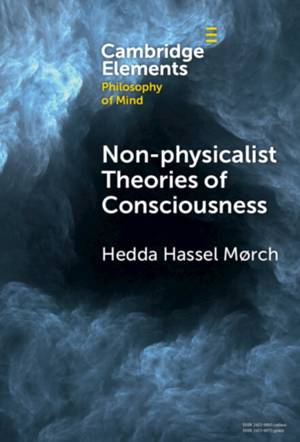
- Afhalen na 1 uur in een winkel met voorraad
- Gratis thuislevering in België vanaf € 30
- Ruim aanbod met 7 miljoen producten
- Afhalen na 1 uur in een winkel met voorraad
- Gratis thuislevering in België vanaf € 30
- Ruim aanbod met 7 miljoen producten
Omschrijving
Is consciousness a purely physical phenomenon? Most contemporary philosophers and theorists hold that it is, and take this to be supported by modern science. But a significant minority endorse non-physicalist theories such as dualism, idealism and panpsychism, among other reasons because it may seem impossible to fully explain consciousness, or capture what it's like to be in conscious states (such as seeing red, or being in pain), in physical terms. This Element will introduce the main non-physicalist theories of consciousness and explain the most important arguments for them, and consider how they each respond to the scientific and other arguments in support of physicalism. This title is also available as Open Access on Cambridge Core.
Specificaties
Betrokkenen
- Auteur(s):
- Uitgeverij:
Inhoud
- Aantal bladzijden:
- 88
- Taal:
- Engels
- Reeks:
Eigenschappen
- Productcode (EAN):
- 9781009462273
- Verschijningsdatum:
- 1/02/2024
- Uitvoering:
- Hardcover
- Formaat:
- Genaaid
- Afmetingen:
- 152 mm x 229 mm
- Gewicht:
- 290 g

Alleen bij Standaard Boekhandel
+ 225 punten op je klantenkaart van Standaard Boekhandel
Beoordelingen
We publiceren alleen reviews die voldoen aan de voorwaarden voor reviews. Bekijk onze voorwaarden voor reviews.








